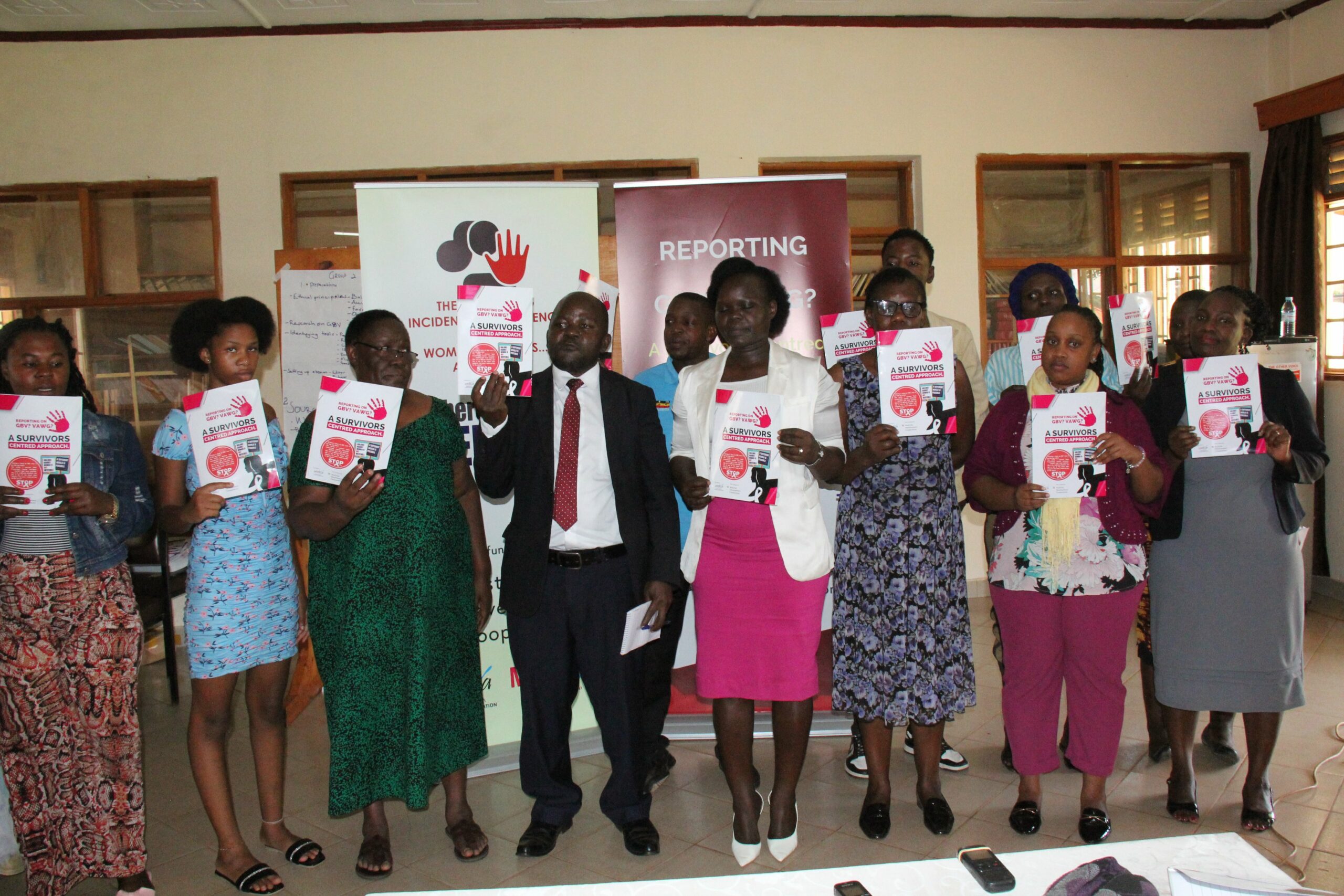
 Mama FM
Mama FM

 Mama FM
Mama FM
31 October 2024, 1:20 pm
Byamukama Alozious
The Uganda Media Women’s Association (UMWA), with support from the Austrian Development Agency, has launched a transformative book, A Survivor-Centred Approach: A Journalist’s Guide, to help journalists cover gender-based violence (GBV) and violence against women and girls with the sensitivity and fairness that survivors deserve.
Hosted at UMWA premises, the launch event brought together over 40 journalists, civil society organisations (CSOs), activists, and survivors committed to enhancing human rights protections for marginalised women facing GBV.
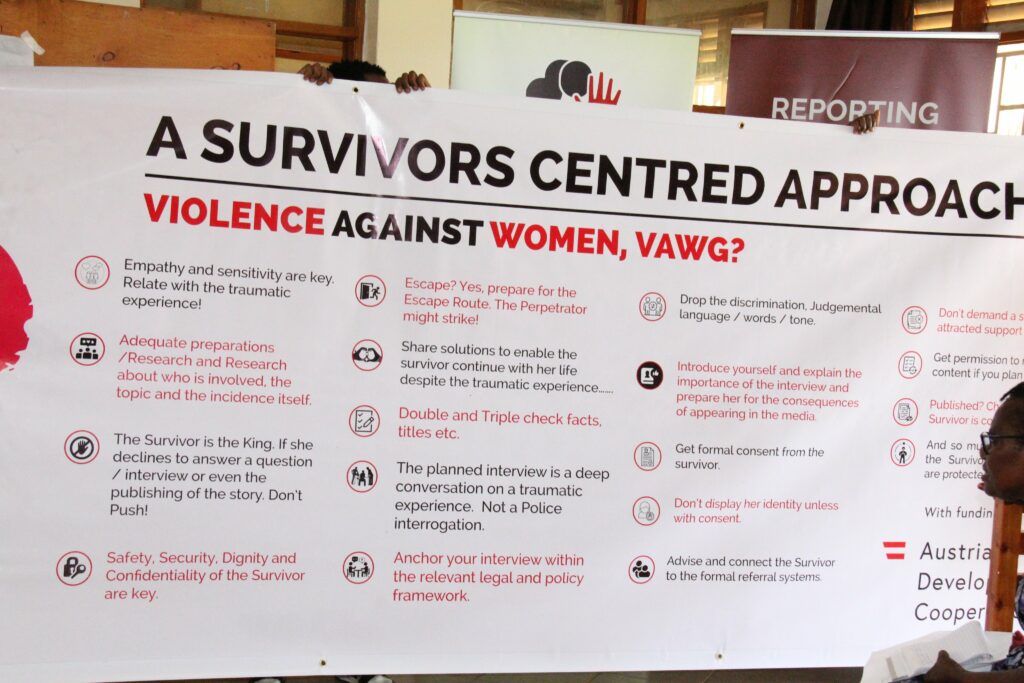
UMWA has been implementing a two-month project in Kawempe, Kampala, aimed at equipping journalists, survivors, civil society organisations, and police with essential skills to address gender-based violence (GBV). This initiative responds to Uganda Bureau of Statistics (UBOS) data indicating that Kawempe accounts for 14% of GBV cases in Kampala City, empowering survivors to connect with journalists and access support.
Margret Ssentamu, UMWA’s Executive Director, emphasised the book’s importance. “As a senior editor guiding young journalists specialising in GBV, it’s crucial to consider factors such as sensitive language and thorough research,” she stated. Ssentamu explained that the book highlights essential “do’s and don’ts” for journalists covering GBV, particularly with a survivor-centred approach.
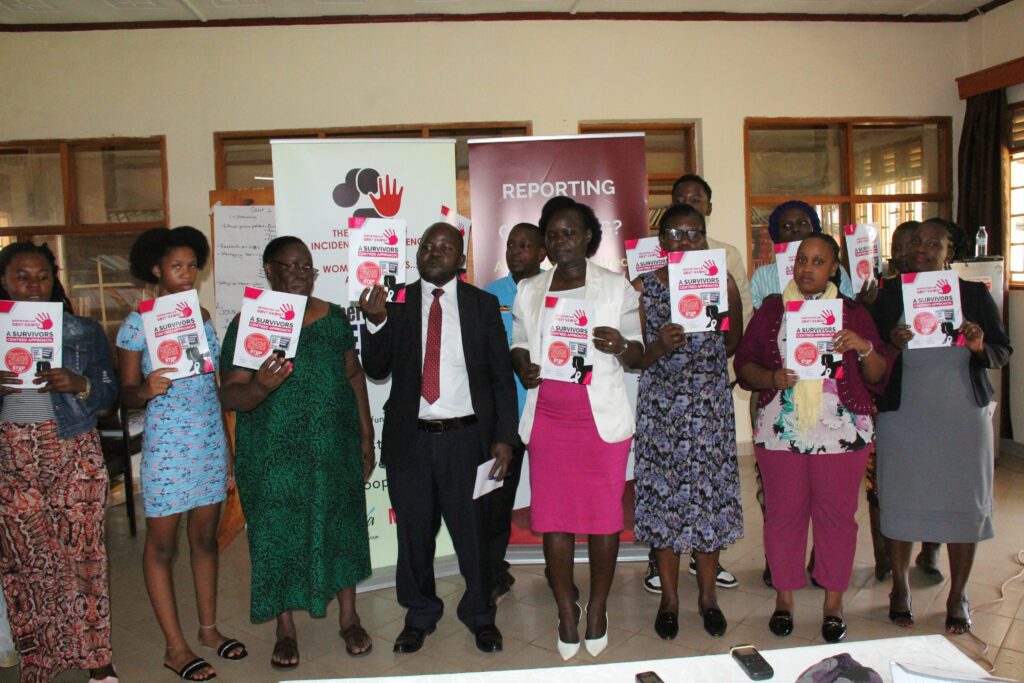
Supported by the Austrian Development Agency, this project bridges the gap between survivors and the media, creating safe avenues for them to share their stories. Farukuoye Beate, Deputy Director of the Austrian Development Agency, acknowledged the impact of these training sessions, expressing gratitude for empowering survivors to communicate openly with journalists. “These sessions help survivors feel heard and understood, fostering trust between journalists and the community,” she noted during a recent training session.
One survivor shared their perspective on connecting with the media through this initiative: “We thought journalists were unreachable, but now we know they can come to us, listen to us, and help amplify our rights.” This experience underscores the importance of empowering survivors to communicate openly and seek support.
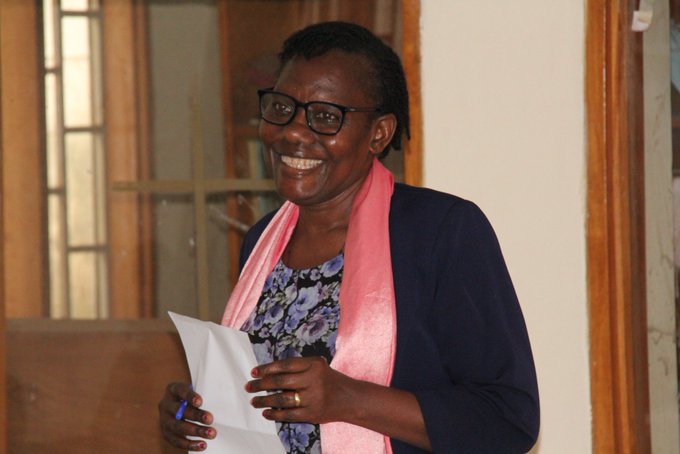
The book also received support from various media professionals who expressed how this resource has improved their approach. Peace Basemera from UBC West Radio shared how the training transformed her gender perspective. “Before, I was gender-blind in my reporting,” she admitted. “This book, with references to GBV shelters, police contacts, and health facilities, now serves as a valuable lens for me, helping to ensure balanced and sensitive coverage.”
Richard Kityo, Principal Officer at the Ministry of Gender, Labour, and Social Development, officially launched the book on behalf of the government, recognising UMWA’s significant role. “UMWA is advancing our ministry’s mission to promote social justice for all citizens,” he remarked, stressing that GBV can lead to severe consequences, including physical and mental health impacts, and even death. Kityo added that the book’s focus on researching, interviewing, and publishing with care offers journalists crucial guidance for responsible GBV coverage.
Doreen Sampa, UMWA’s Advocacy and Lobbying Officer, emphasised that journalists often overlook legal frameworks crucial to GBV coverage, such as the Domestic Violence Act of 2010. “It’s essential for the public to understand their legal rights,” Sampa stated, explaining that the handbook provides practical advice on integrating such laws into reporting to raise awareness of survivors’ rights.
Jael Namiganda from Metro FM described the survivor-centred approach book as “an eye-opener,” noting that it reinforces journalists’ ethical responsibilities when covering GBV. “This guide is a reminder to avoid language that could stigmatise survivors, ensuring sensitive and respectful coverage,” she said, underscoring its value for both new and experienced journalists.
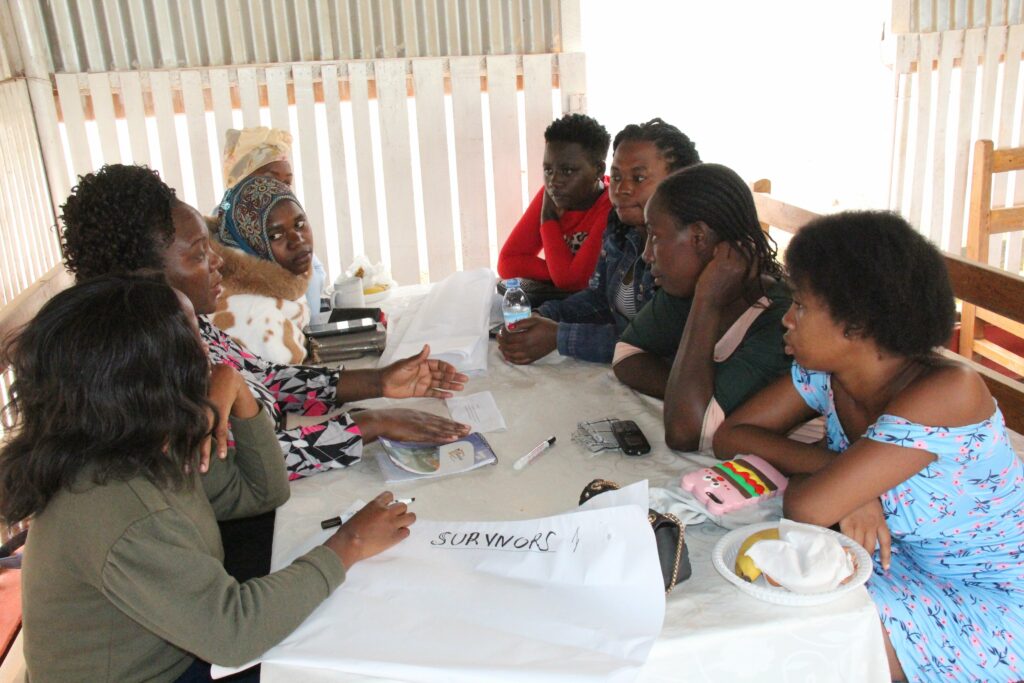
Basemera echoed this sentiment, expressing her intention to use the book as a reference for her stories, particularly for guidance on handling survivors’ identities and details sensitively. Reflecting on her growth, she noted, “Before, my stories lacked a gender-sensitive approach. Now, I feel more equipped to cover GBV responsibly.”
UMWA’s Gender Officer, Clothilda Babirekere, emphasised the handbook’s guidelines on story verification, fact-checking, and protecting survivors’ identities. She explained that following up with survivors post-publication builds trust and ensures their comfort with the content.
With the support of UMWA and the Austrian Development Agency, journalists now have the tools to report responsibly on GBV, amplify survivors’ voices, and foster a media environment where dignity and accuracy are prioritised.